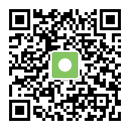What do I Need to Know about the Financial Calendar?
If you are trading in the forex market, you need to keep track of global events that could impact the exchange rate of the currency pair that you are trading in. The easiest way to do so is to use a financial calendar that tracks such market-moving events. Some of the most influential events are changes in the GDP of the nations of the currencies you are trading, interest rate decisions in these countries, Consumer Price Index (CPI), Purchasing Managers’ Index (PMI) and jobs data like the non-farm payroll (NFP), among others.
Choose a financial calendar you are comfortable with
While you could research online for key future political and economic indicators and create your own calendar, there are several reliable online platforms that offer economic calendars, with the indicators being automatically updated at regular intervals. easyMarkets has an excellent financial calendar that also highlights the importance of each economic indicator giving you an indication of which are more likely to move markets. If you’re trading specific markets you might choose to add those indicators into your own personal calendar.The key to success in using these events to your advantage is not only knowing when they will occur but in anticipating which direction the market will move as a result and why. However, most of the times, the reaction of the markets can be unpredictable, although they do present the trader with excellent opportunities to make a successful trade. It is completely your decision whether or not you want to use these events to trade but knowing when these events will occur still remains crucial. The first step is, of course, to choose a financial calendar that you are comfortable with.

Step 1: How to Choose a Financial Calendar
While you could research online for key future political and economic indicators and create your own calendar, there are several reliable online platforms that offer economic calendars, with the indicators being automatically updated at regular intervals. easyMarkets has an excellent financial calendar that also highlights the importance of each economic indicator giving you an indication of which are more likely to move markets. If you’re trading specific markets you might choose to add those indicators into your own personal calendar.

Step 2: How to Choose the Right Indicators
Experienced forex traders monitor future economic events in an attempt to predict currency movements and act in time to make the most of the economic announcements. They usually already calculate the impact on their currency pair and plan their trade accordingly. They also tend to lay greater emphasis on specific indicators that they believe will be the most influential or meaningful for their currency pair.
How they use the economic calendar is that they keep track of approaching announcements. What usually occurs is that economic experts forecast the measures that are likely to be announced. The forex trader then uses these forecasts to price in the value into their currency pair, responding to currency movements before others have a chance and thereby maximising their gains. The reality is that economic events can alter the direction of currency movement within seconds and the quicker you respond with a trading decision, the more likely you are to gain. Of course, making a profit would ultimately depend on whether you have been able to predict the movement or volatility accurately. Often it is not about the actual data that comes out but whether the data is outside of expectations. So if for example people expect an NFP number of new jobs added to come in at 130,000 and it comes way above or below that number, then it’s possible to see some large moves for the US dollar in response.

Step 3: Using the Calendar
There are many macroeconomic indicators to choose from, the question is which one is the best for you. The first thing you should consider when looking at the economic calendar is what asset you are trading: certain indicators affect currency pairs either directly or indirectly. A direct relationship would be if you were trading EUR/USD and the ECB had an upcoming interest rate decision and an indirect relationship would be if a policy was announced that effects a currency that has a direct relationship with the currency or the currency pair you are trading.
Another consideration when choosing which indicator to follow is what type of trading you do. If you are intraday or a “Buy and Hold” trader, different indicators will affect markets either temporarily or long-term. There are indicators that affect both though, like interest rate hikes for example. Short term they either bolster or hurt market sentiment and long term it can affect the price (because it has a direct correlation with inflation which has a reverse correlation with a currencies exchange rate).
Some indicators like global GDP or Global Oil Reserves (especially when it comes in under expectation) have the potential to cause volatility globally.

Remember to consider all the political and economic factors
The bottom line is that if you monitor the calendar regularly, you will be able to follow trends better and even spot a trend before the market does and benefit from your analysis of the trend.
While using an economic calendar, what is important to remember is that you will need to consider all the political and economic factors that can impact your currency pair. This essentially means that you need to keep the bigger picture in mind and not just specific announcements or events. For instance, an event that impact a currency that you might not be trading in could have an impact on your pair too. So, while choosing indicators to follow on the calendar, make sure you choose carefully.












